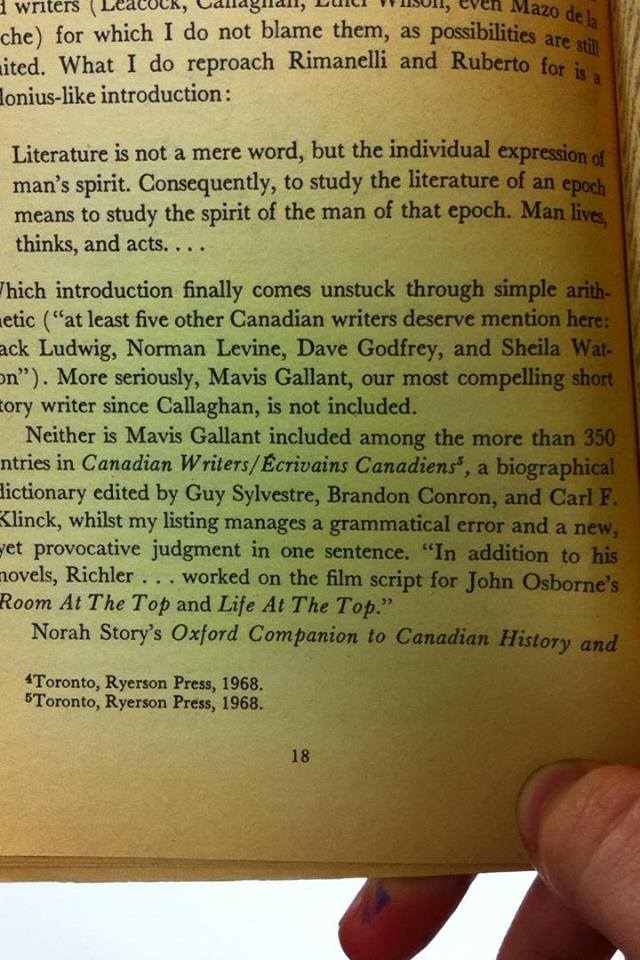I was reading "Maple Leaf Culture Time", an essay by Mordecai Richler, and came across this page:
Here is the text in question, transcribed:
Neither is Mavis Gallant included among the more than 350 entries in Canadian Writers/Écrivains Canadiens, a biographical dictionary edited by Guy Sylvestre, Brandon Conron, and Carl F. Klinck, whilst my listing manages a grammatical error and a new, yet provocative judgement in one sentence. "In addition to his novels, Richler ... worked on the film script for John Osborne's Room at the Top and Life at the Top."
What's the grammatical error? The only blatant thing I could see what the minor plural mishap, wherein they mention two scripts but write "the film script." Is that it? or is he referring to something else?

